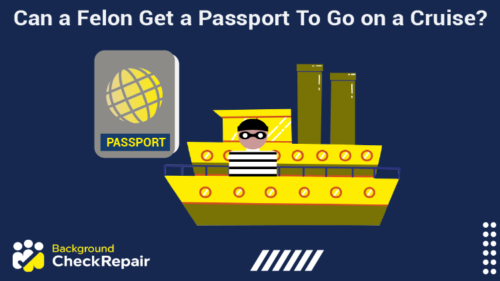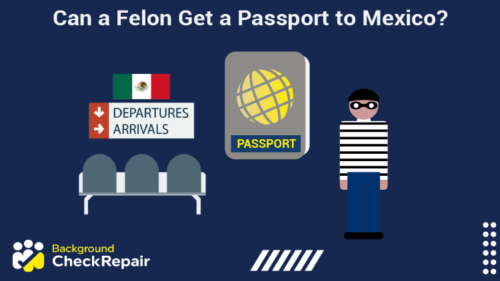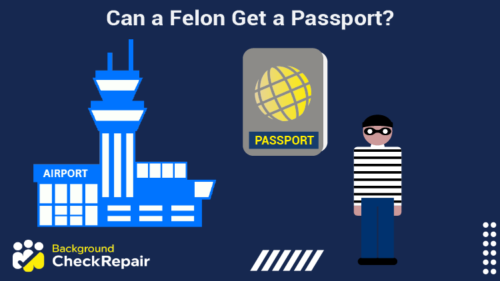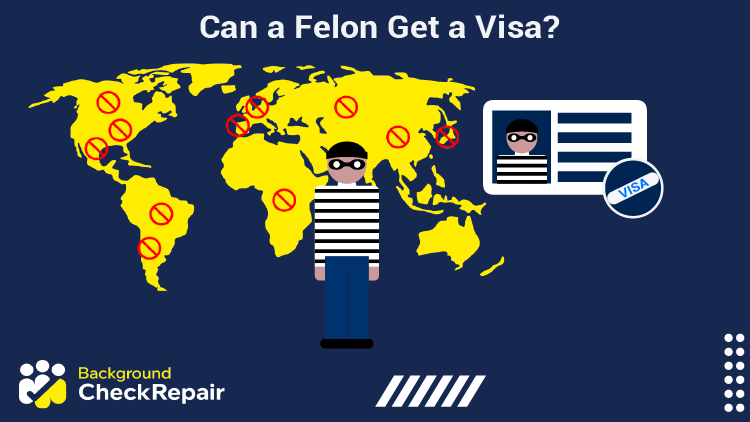
Traveling or moving out of the country is a daunting transition for anyone, but for individuals with a criminal record, worrying about can a felon get a visa, can be paramount.
Past transgressions may prevent convicted felons from entering certain countries.
The good news is that there are a lot of options for individuals who have criminal records and still want to travel.
It is important to understand felon visa laws and be aware of which countries restrict felon entry.
So when asking, can a felon get a visa, this complete guide provides the answers as well as the restrictions for 16 restricted countries.
Most Common Felony Travel Restrictions
Living with a criminal record can be tough, and felony travel restrictions may be foremost on someone’s mind after completing their sentence and securing employment.
Questions such as “Is international travel permitted for felons?”, “Are felons able to acquire a passport?,” or “Can a felon get a visa?” can create stress and anxiety.
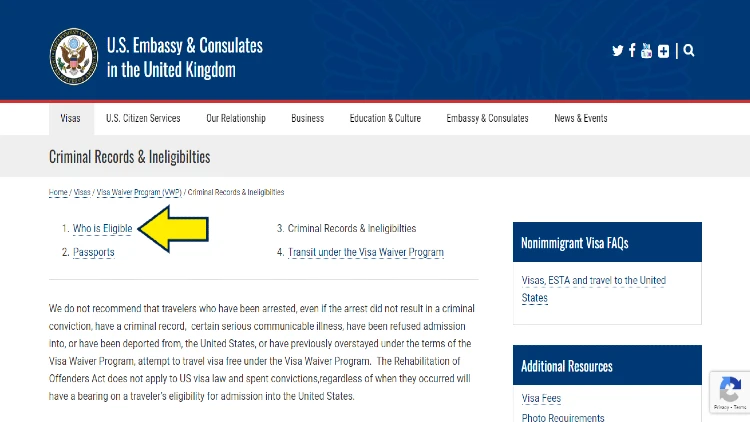
The U.S. Embassy’s in various countries outline who is able to enter the country and who is eligible to travel through the country on a Visa Waiver Program.
This article answers these questions and more and addresses all of the common travel concerns felons may have.
The biggest factors which contribute to felony travel restrictions are the following:
- Outstanding warrants or pending felony cases.
- Whether the sentence has been completed and court orders have been met.
- The nature of the felony crime.
- The travel restrictions in the destination country.
Individuals who are wanted for a crime or currently undergoing a felony trial are barred from travel, as are individuals currently fulfilling the terms of their sentence (prison time, parole and probation, fines).22 The latter two factors (nature of the crime and travel restrictions in the destination country) are not as cut and dry and are the primary focus of this article.
Drug Convictions and Travel
Drug convictions and travel are one of the trickier areas to navigate for felons. Drug-related crimes are taken very seriously by many nations, including the United States.
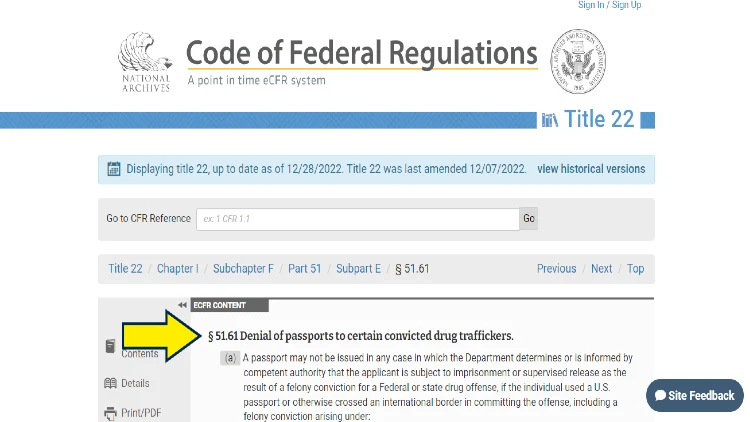
The code of federal regulations prohibits drug traffickers from obtaining a passport.
Persons wondering can a drug felon get a passport should note that any individual who has been convicted of international drug trafficking is barred from obtaining a US passport and is similarly barred from entering most countries.21
Even some misdemeanor drug offenses may prevent someone from securing a passport if the crime involved crossing international borders (see Cornell University Legal Information Institute).
Can Felons Travel Out of State?
Another common question is whether can felons travel out of state. After completing all sentencing requirements, felons can typically travel freely within the confines of the US and US territories.
However, felons currently on parole or serving probationary terms must receive a court release for out-of-state travel.
What Countries Can a Convicted Felon Not Travel To?
Understanding when and where can a felon get a visa is essential, but it’s also important to know what countries can a convicted felon not travel to. Anyone who finds themselves wondering “Are there countries you cannot visit with a criminal record?” should take note of the countries that are particularly strict on foreign crime. These countries include:
- Australia
- Canada
- Mexico
- New Zealand
- United Kingdom
- United States
While some of these countries place restrictions on the severity of the felony offense and the length of time since the offense, other countries (e.g. Canada) require a waiver for any felony offense and some misdemeanor offenses.1,29
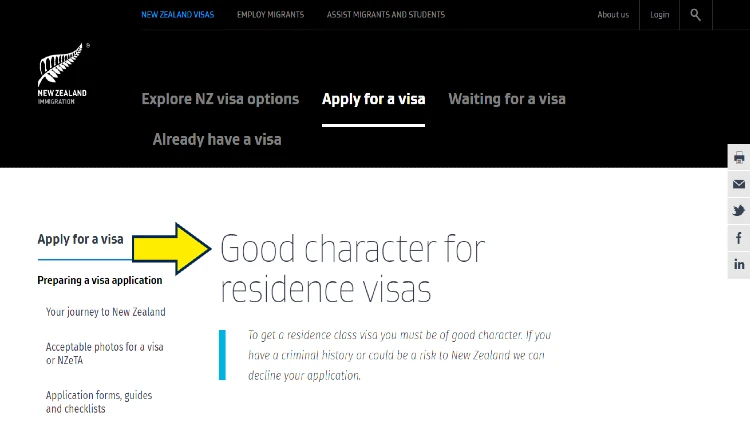
Meanwhile, many other countries, while not requiring disclosure of criminal records upon entry, may remove an individual from the country if a felony conviction is discovered. Knowing which felony convictions can be expunged can relieve the burden of uncertainty when traveling abroad.
The following table provides information on various countries’ travel regulations, including a list of countries a felon cannot visit. For more information about various European countries, view Travel Restrictions for Convicted Felons European Union.
| What Felonies Disqualify You From Traveling to Various Countries? | Types of Felony Disqualifiers | Other Relevant Information |
| Argentina7 | - Weapons Trafficking
- Drug Trafficking
- Human Trafficking
- Money Laundering
Crimes of corruption or those which would receive a sentence greater than 3 years prison time in Argentina. Registered sex offenders may be turned away. | The passport must have 6 valid months remaining upon entry. Visa is required for stays longer than 90 days. |
| Australia16 | Any criminal conviction with a sentence of 12 months or more. Multiple criminal offenses result in a combined sentence period of 12 months or more. Registered sex offenders will be turned away. | For visits of less than 3 months, an eVisitor visa is required. * Individuals with a disqualifying offense must apply for a full tourist visa and demonstrate “good character.” |
| Brazil8 | - Weapons trafficking
- Drug trafficking
- Smuggling
- Robbery
- Fraud
- Violent felonies such as rape and homicide.
Registered sex offenders may be turned away. | Visa is required for all US citizens, regardless of the reason for or length of visit. |
| Canada2 | Any felony. Some misdemeanors (e.g. DUI, reckless driving, disorderly conduct, vandalism). Registered sex offenders will be turned away. | Canada is one of the strictest countries on individuals with criminal records. Individuals may apply for a Temporary Resident Permit (TRP) or criminal rehabilitation in some situations. |
| China24 | Likely any drug offense Registered sex offenders may be turned away. | Foreigners may be subjected to random drug testing. Travel to China is not currently advised by the U.S. Department of State due to COVID-19 and “arbitrary enforcement of local laws.” |
| France25 | Only felonies that prevent someone from obtaining a US passport, such as drug trafficking, terrorism, and espionage. | France is part of the Schengen Area, which allows US citizens to enter with a valid passport. Visas are required for stays longer than 90 days. |
| Germany25 | Only felonies that prevent someone from obtaining a US passport, such as drug trafficking, terrorism, and espionage. | Germany is part of the Schengen Area and allows US citizens to enter with a valid passport for up to 90 days. |
| India19 | Anyone whose name is on the Transportation Security Administration (TSA) no-fly list for suspected terrorism. Registered sex offenders may be turned away. | A visa is required for admittance to India, but the application does not include questions about criminal history. |
| Jamaica3 | - Drug peddling
- Human trafficking
- Financial fraud
- Unpaid child support
Registered sex offenders may be turned away. | A valid passport, proof of financial competence, and a return ticket are required for visits up to 90 days. Individuals should be mentally stable to enter Jamaica. Travel bans for serious crimes are effective for 5 years after sentence completion. |
| Japan6 | - Any drug-related conviction
- Human trafficking
- Prostitution
Any criminal conviction resulting in a sentence of 1 year or more. Registered sex offenders may be turned away. | Recent Visa Waiver Program member. Individuals with valid U.S. passports can visit for up to 90 days visa-free. Japan may restrict the entry of indigent persons and individuals with severe mental disabilities. |
| Korea (South)20 | Crimes that prevent someone from obtaining a US passport (terrorism, drug trafficking) will prevent travel to South Korea. Registered sex offenders may be turned away. | South Korea has a reciprocal agreement with the US to permit entry to individuals with a valid US passport. A valid passport is required for stays up to 90 days. Visa (or Korean Electronic Travel Authorization (K-ETA)) is required for stays longer than 90 days. |
| Mexico9 | - Murder
- Terrorism
- Drug trafficking
- Public disturbances
- Burglary
- Rape
Registered sex offenders will be turned away. | Expect to undergo a background check. A valid passport and visa are required for entry. |
| New Zealand30 | Any crime (committed within the past 10 years) resulting in a sentence of 1 year or more. Any crime (committed at any time) resulting in a sentence of 5 years or more. Registered sex offenders will be turned away. | |
| Russia25, 30 | Serious crimes, unspecified, which likely include:- Acts of terrorism
- Violent crimes against persons
- Drug trafficking
| A visa is required for entry. The application requires biometric fingerprinting and listing of criminal convictions. Travel to Russia is not currently advised for US citizens, per the US Embassy and Consulates in Russia. |
| United Kingdom14 | - Drug-related crimes
- Human trafficking
- Murder/manslaughter
- Rape
- Kidnapping
- Child pornography
- Assault
- Cybercrime
- Tax evasion
- Animal cruelty
Felony crimes resulting in less than 1 year of jail time bar entry for 5 years after sentence completion. Felony crimes resulting in 1 to 4 years prison time bar entry for 10 years after sentence completion. Registered sex offenders will be turned away. | US citizens with valid passports do not need a visa. |
| United States | Aggravated felonies (those which warrant a prison sentence of 1 year or more). Registered sex offenders may be turned away. | |
Can Felons Get a Passport?
In most cases, a felony conviction does not prevent an individual from obtaining a US passport and the answer to can felons get a passport is often YES. However, there are some felony crimes that do bar someone from getting a passport. These include:
- International drug trafficking
- Treason or conspiracy to commit treason against the US government
Additionally, individuals with active warrants, outstanding government loan debt, or child support debt may not be eligible for a passport.21
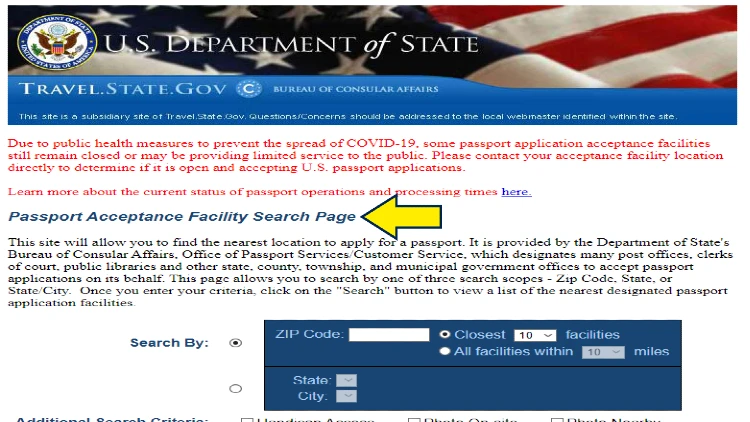
The State Department provides a quick search tool to find passport facilities around the country.
Individuals can use the Passport Acceptance Facility Search Page to find a nearby location to submit a passport application.
What Disqualifies You From Getting a Passport?
There are many online resources for individuals seeking a passport, and anyone can access the U.S. Passport Applications and Forms through the U.S. Department of State website.
However, before plunging into the passport application process, it is important to understand what disqualifies you from getting a passport. The following is a complete list:1
- Outstanding warrants
- Ongoing sentencing, parole, or probationary terms
- Unsatisfied court orders
- Unpaid child support of $2,500 or more
- Unpaid taxes or government loans.
- Certain felony convictions
Contact the National Passport Information Center (NPIC) for more information.
What Felonies Disqualify You From Getting a Passport?
Knowing what felonies disqualify you from getting a passport is an important follow-up, and the list is actually very short. Felonies involving international drug crimes and treason will bar someone from obtaining a U.S. passport.28
Note, that this is somewhat different than the question of what felonies will deny a passport as the destination country can determine whether to accept the validity of a U.S. passport or further investigate an individual’s criminal record. Some felonies which may lead a foreign country to deny a U.S. passport or require further proof of good character are likely to include:13
- Drug crimes
- Human trafficking
- Murder
- Smuggling
- Fraud
Find out how to conduct a free check to see if you have a felony to stay informed and prepared.
Can a Felon on Parole Get a Passport?
Parole is an alternative to serving prison time which may be granted in some situations to allow an individual to work towards achieving a normal life. However, it is still considered part of an individual’s sentence, and therefore, the answer to can a felon on parole get a passport is typically NO.21
How Long Before a Felon Can Get a Passport?
Many individuals with criminal records are under the impression that they must wait a specified period of time before applying for a U.S. passport. However, this is not the case, and for anyone wondering how long before a felon can get a passport, a felon is passport eligible as soon as all sentencing conditions have been met.27
Individuals can check the Online Passport Status System to follow where their application is in the process.
A US passport allows felons to leave the United States, but it does not necessarily grant permission for them to enter other countries.
In many cases, individuals are required to obtain a visa before entering foreign countries or staying for extended periods, leading to the question of can a felon get a visa.
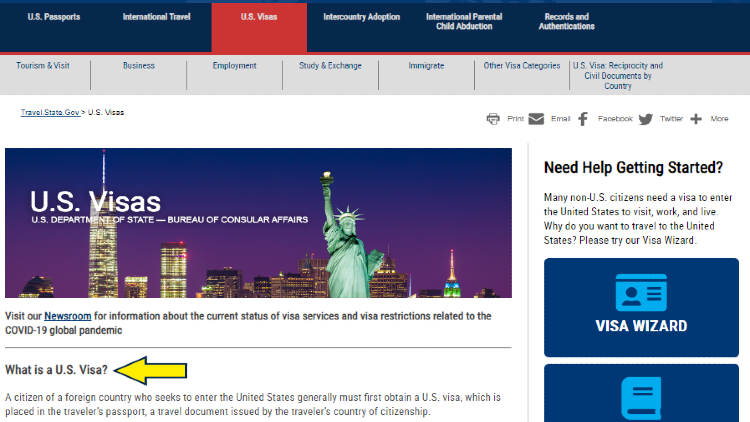
When traveling to other countries, individuals typically need to obtain a visa from the destination country to include with their passport.
This question cannot be answered with a simple yes or no because visa requirements and the granting of a visa depends entirely upon the destination country.22 Many countries do not ask about criminal history on visa applications and those that do are primarily concerned about certain types of felonies and the recency of the offense.
A general rule to remember is that the more serious the felony crime, the harder it will be to obtain a visa in a foreign country.
Use the U.S. Department of State’s International Travel page to learn about each country’s travel requirements.
When Can a Felon Get a Visa?
The question of when can a felon get a visa is a flip side of where can a felon get a visa. The two questions have similar answers: it depends upon the country’s travel restrictions.
The United States does not regulate when its citizens apply for visas to foreign countries, and anyone who has a U.S. passport can apply for a visa. However, many countries require that a felon wait a certain number of years before applying for a visa (e.g. Jamaica – 5 years, UK – 10 years).
Is There an FBI Background Check for Visa?
Individuals with a criminal record are likely concerned about a background check for visa application. It is true that some consulates or foreign embassies mandate a criminal background check or police clearance from the home country to obtain a visa. In the case of U.S. citizens, this may come in the form of an FBI background check for a visa.
What this actually means is that the foreign consulate would receive a copy of the U.S. citizen’s FBI Identity History Summary Check or equivalent document.18
In other cases, criminal record clearance may be granted by a state law enforcement agency, but this is dependent upon the country’s visa policies.26
What Is the Penalty for Lying on Visa Application?
Most countries require visas for individuals planning to stay longer than a few months, and some countries require visas for all foreign visitors.
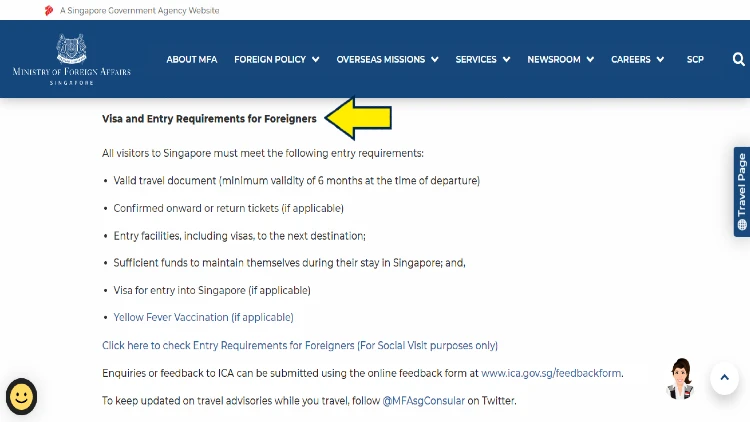
Each country outlines it’s own stipulations for entry, including obtaining a visa, as well as vaccinations and other requirements.
Visa applications differ by country, and in some countries, the application does not ask about past criminal history.
However, in the situation where the visa application does ask about criminal history, it is crucial for the applicant to be open and honest, as the penalty for lying on visa applications can be harsh and include a permanent travel ban.22
Do Countries Share Criminal Records?
Many people find themselves wondering how do countries share criminal records.
In most cases, criminal records aren’t automatically shared with foreign governments (Canada/U.S. is an exception) but can be requested.1 However, many members of the European Union (EU) utilize INTERPOL to track cybercrime, organized crime, and terrorism.10
Can a Felon Get a Visa? What Countries Can a Convicted Felon Travel To?
A commonly asked question is “What countries can a convicted felon travel to?” Assuming an individual is not disqualified from obtaining a passport because of an active warrant, incomplete sentence term, or international drug conviction, there are many options.
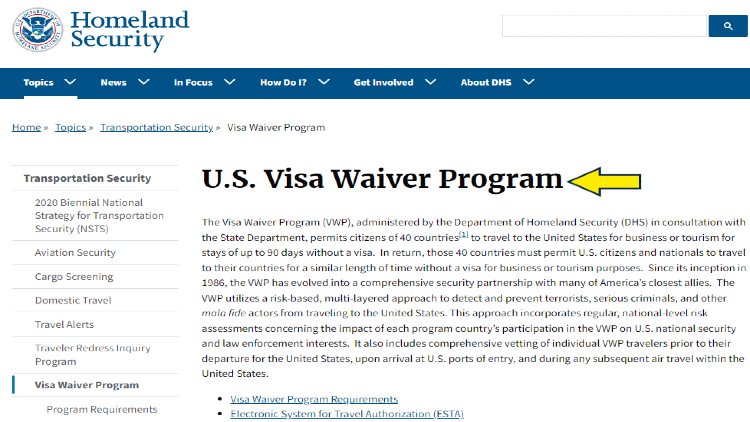
The U.S. Visa Waiver program allows visitors to come into the United States for up to 90 days without a valid visa.
The United States has reciprocal relationships established with many countries through the Visa Waiver Program which allows U.S. citizens with a valid passport to enter and stay up to 3 months without a visa. There are 40 countries named in the program, and a few of them are:
- Chile
- Ireland
- Schengen Area European countries
- Singapore
- South Korea
- Taiwan
What Countries Can Felons Move To?
Ex-felons looking to relocate abroad are likely to wonder what countries can felons move to.
Generally, any country where a felon can successfully obtain a visa for long-term stay would also permit the individual to reside there. This includes many European, South American, African, and Caribbean nations whose residency requirements may not include a criminal background check.17
What Are Some European Countries That Allow Felons To Visit?
For people who are curious about European countries that allow felons to visit or even relocate, the Schengen Area is known for being receptive to individuals with criminal backgrounds.
The 26 European countries that participate in the Schengen Borders Agreement allow any felon with a U.S. passport as well as citizens from several other countries to travel freely within the area for up to 90 days.29
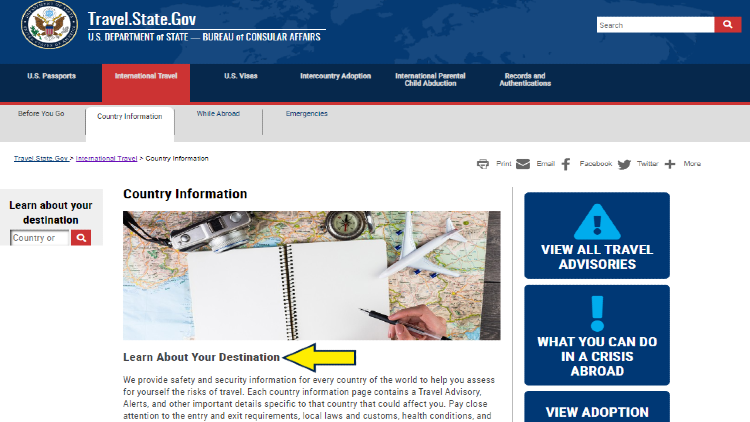
Access State Department websites to learn about the restrictions in the country of destination before embarking.
A new policy is set to take effect in November 2023, which will require most foreign visitors, including U.S. citizens, to apply for an ETIAS visa waiver.13
What Countries Can a Convicted Felon Not Travel To?
Understanding when and where can a felon get a visa is essential, but it’s also important to know what countries can a convicted felon not travel to. Anyone who finds themselves wondering “Are there countries you cannot visit with a criminal record?” should take note of the countries that are particularly strict on foreign crime. These countries include:
- Australia
- Canada
- Mexico
- New Zealand
- United Kingdom
- United States
While some of these countries place restrictions on the severity of the felony offense and the length of time since the offense, other countries (e.g. Canada) require a waiver for any felony offense and some misdemeanor offenses.1,29
Meanwhile, many other countries, while not requiring disclosure of criminal records upon entry, may remove an individual from the country if a felony conviction is discovered. Knowing what felonies can be expunged can relieve the burden of uncertainty when traveling abroad.
The following table provides information on various countries’ travel regulations, including a list of countries a felon cannot visit. For more information about various European countries, view Travel Restrictions for Convicted Felons European Union.
There are many countries that place restrictions on felon entry and some countries which prevent felons from gaining visas. However, the list of restricted countries is likely not as extensive as many people imagine. Understanding felon visa laws in every country is crucial to determining when can a felon get a visa.
Frequently Asked Questions About Can a Felon Get a Visa











